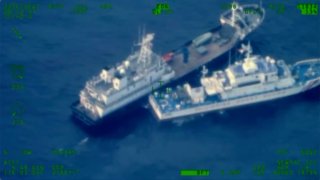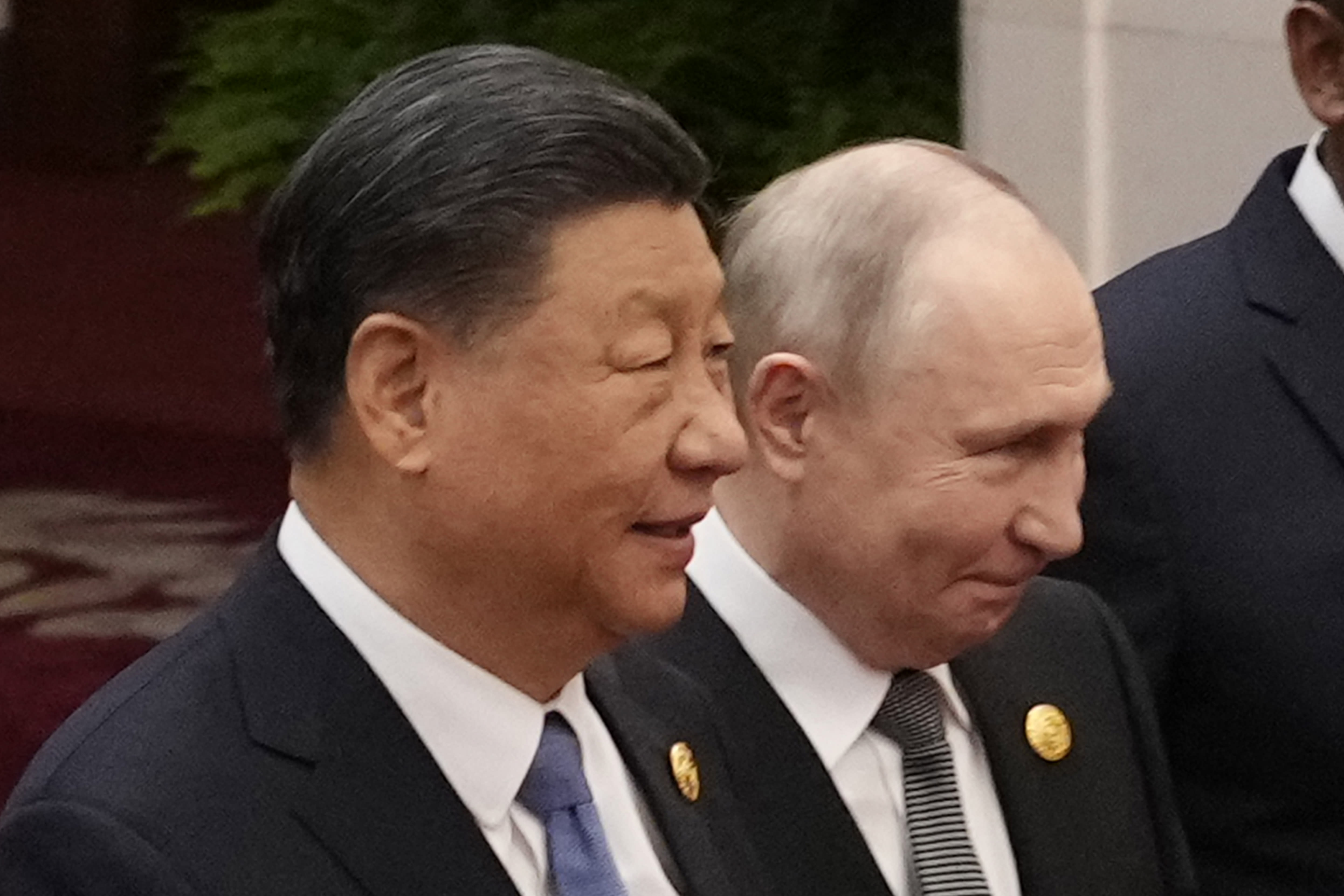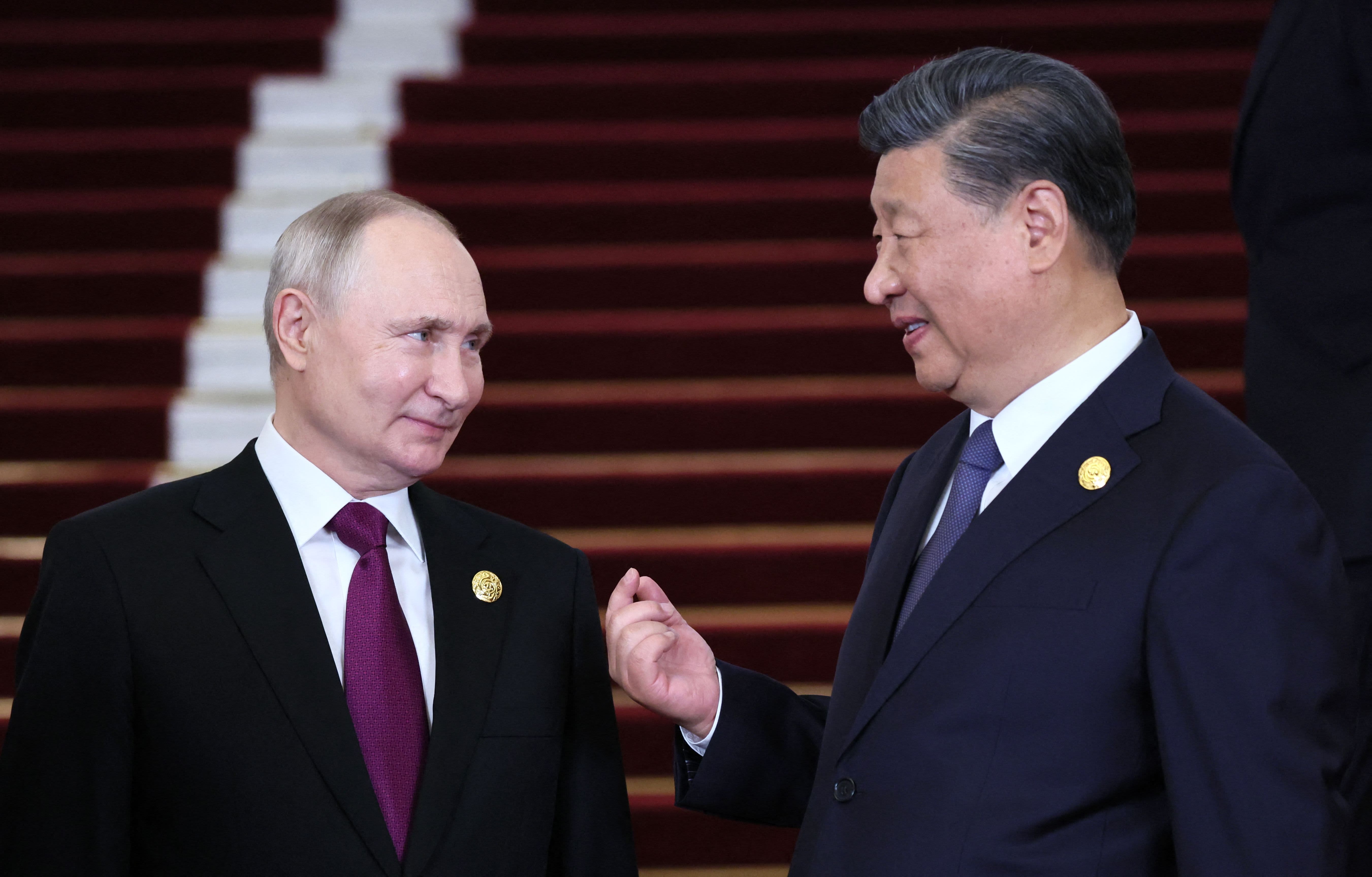
The United States renewed a warning Monday that it would defend the Philippines in case of an armed attack under a 1951 treaty, after Chinese ships blocked and collided with two Filipino vessels off a contested shoal in the South China Sea.
Philippine diplomats summoned a Chinese Embassy official in Manila on Monday for a strongly worded protest following Sunday’s collisions off Second Thomas Shoal. No injuries were reported but the encounters damaged a Philippine coast guard ship and a wooden-hulled supply boat operated by navy personnel, officials said.
President Ferdinand Marcos Jr. called an emergency meeting with the defense secretary and other top military and security officials to discuss the latest hostilities in the disputed waters. The Philippines and other neighbors of China have resisted Beijing's sweeping territorial claims over virtually the entire South China Sea, and some, like Manila, have sought U.S. military support as incidents multiply.
After the meeting, Defense Secretary Gilberto Teodoro blasted China in a news conference for resorting to “brute force” that he said endangered Filipino crew members and for twisting the facts to conceal its aggression.
“The Philippine government views the latest aggression by China as a blatant violation of international law,” Teodoro said. “China has no legal right or authority to conduct law enforcement operations in our territorial waters and in our exclusive economic zone.”
Marcos ordered an investigation of the high-sea collisions, Teodoro said, but he refused to disclose what steps the Philippine government would take.
Get Tri-state area news delivered to your inbox. Sign up for NBC New York's News Headlines newsletter.
“We are taking these incidents seriously at the highest levels of government,” he said, adding that the government called for a news conference to provide accurate facts. “The Chinese government is deliberately obfuscating the truth,” the defense chief said.
The Philippines also plans to raise its alarm over the Chinese ships’ dangerous maneuvers in talks between China and the Association of Southeast Asian Nations on a proposed nonaggression pact — a “code of conduct” — to prevent a major armed conflict in the South China Sea. Beijing is hosting the three-day negotiations starting Monday, two Philippine officials told The Associated Press on condition of anonymity because of a lack of authority to publicly discuss details of the talks.
Teodoro said it was “very ironic” that China was hosting the talks that aim to prevent major conflicts at sea when they just committed “a blatant disregard of international law."
The territorial conflicts involving China, the Philippines, Vietnam, Malaysia, Taiwan and Brunei have long been regarded as a flashpoint in a delicate fault line in the U.S.-China rivalry.
About five Chinese coast guard ships, eight accompanying vessels and two navy ships formed a blockade on Sunday to prevent two Philippine coast guard ships and two boats from delivering food and other supplies to Filipino forces stationed at Second Thomas Shoal aboard a marooned navy ship, Philippine coast guard Commodore Jay Tarriela said.
During the standoff, one of the Philippine coast guard ships and a supply boat were separately hit by a Chinese coast guard ship and a vessel. Only one of the two Filipino boats managed to deliver supplies to Philippine forces, Tarriela said.
The senior Chinese diplomat who was summoned by Philippine foreign officials repeated China’s assertion that the Philippine vessels intruded into Chinese territory.
“China once again urges the Philippines to take seriously China’s grave concerns, honor its promise, stop making provocations at sea, stop making dangerous moves, stop groundlessly attacking and slandering China, and to tow away the illegally ‘grounded’ warship as soon as possible,” Zhou Zhiyong was quoted as saying by the Chinese Embassy in Manila.
He was referring to the Sierra Madre, which serves as Manila’s territorial outpost at the shoal after being deliberately ran aground in 1999.
The Chinese coast guard on Sunday blamed the Philippine vessels for causing the collisions and said the Filipinos were carrying construction materials to strengthen their outpost at the shoal.
The U.S. and other allies expressed alarm over the Chinese action. Washington renewed a warning that it’s obligated to defend the Philippines under a 1951 Mutual Defense Treaty if Filipino forces, ships and aircraft come under an armed attack, including “those of its coast guard — anywhere in the South China Sea.”
“The United States stands with our Philippine allies in the face of the People’s Republic of China coast guard and maritime militia’s dangerous and unlawful actions obstructing an October 22 Philippine resupply mission to Second Thomas Shoal,” the U.S. State Department said in a statement issued by its embassy in Manila.
It blamed the dangerous maneuvers by China’s ships for the collisions and added that they “violated international law by intentionally interfering with the Philippine vessels’ exercise of high seas freedom of navigation.”
The State Department also cited a 2016 arbitration ruling that invalidated China’s expansive claims to the South China Sea on historical grounds, including in Second Thomas Shoal.
Washington lays no claims to the disputed sea but has deployed forces to patrol the waters to promote freedom of navigation and overflight — moves that have angered Beijing, which has warned the U.S. to stop meddling in what it says is a purely Asian dispute.
___
Mistreanu reported from Beijing. Associated Press journalists Joeal Calupitan and Aaron Favila contributed to this report.



